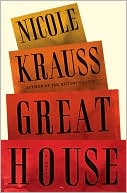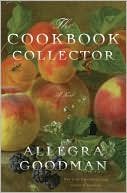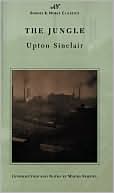Serena
A New York Times notable book of the year\ \ Award-winning and New York Times bestselling novelist Ron Rash conjures a gothic tale of greed, corruption, and revenge with a ruthless, powerful, and unforgettable woman at its heart, set amid the wilds of 1930s North Carolina and against the backdrop of America's burgeoning environmental movement.
Search in google:
A New York Times notable book of the year Award-winning and New York Times bestselling novelist Ron Rash conjures a gothic tale of greed, corruption, and revenge with a ruthless, powerful, and unforgettable woman at its heart, set amid the wilds of 1930s North Carolina and against the backdrop of America's burgeoning environmental movement.The Barnes & Noble ReviewIf there was an award for "Poet Laureate of Appalachia," Ron Rash would certainly win it. In his fourth novel, Serena, Rash revisits the setting of his other books, this time to imbue the hills and hollers, as well as the hardscrabble inhabitants of the Depression-era North Carolina mountains with a lyric elegance that belies the violence of the plot. Plunging in straightaway (pun intended), the story begins with a deadly knife duel as George Pemberton steps off the train and into a tussle with the father of his former mistress, now pregnant with his child. Pemberton's new bride, Serena, is eager to establish herself as her husband's right hand, both in the business of overseeing a vast lumber empire, as well as dealing with the mother of a potentially pesky bastard. She steps in, coolly removes the knife from the chest of the dead man, and hands it to his daughter with advice to sell it. "It's all you'll ever get from my husband and me." This astonishing juxtaposition of Serena's cold, calculating beauty coupled with Pemberton's sanguine earthiness is just one example of how deftly Rash has entwined his narrative's poetic tenor with horrific accidents and the foretelling of chilling murders: "McDowell was in the room's one cell pulling a dingy mattress off its spring base. As the sheriff did so, dust motes floated upward, suspended in the cell window's barred light as if in a web." As the Pembertons push their workers (often in harsh conditions) to decimate the snake-infested forest in the name of wealth and power, the result is this sometimes gothic, sometimes elegiac, altogether frightening tale that lays bare the consequence of ruthless ambition, while asking simply, "So what happens when there ain't nothing left alive at all?" --Lydia Dishman
\ Serena\ \ A Novel \ \ \ \ By Ron Rash \ HarperCollins Publishers, Inc. \ Copyright © 2008 \ \ Ron Rash\ All right reserved.\ \ \ ISBN: 9780061470851 \ \ \ \ Chapter One\ When Pemberton returned to the North Carolina mountains after three months in Boston settling his father's estate, among those waiting on the train platform was a young woman pregnant with Pemberton's child. She was accompanied by her father, who carried beneath his shabby frock coat a bowie knife sharpened with great attentiveness earlier that morning so it would plunge as deep as possible into Pemberton's heart.\ The conductor shouted "Waynesville" as the train shuddered to a halt. Pemberton looked out the window and saw his partners on the platform, both dressed in suits to meet his bride of two days, an unexpected bonus from his time in Boston. Buchanan, ever the dandy, had waxed his mustache and oiled his hair. His polished bluchers gleamed, the white cotton dress shirt fresh-pressed. Wilkie wore a gray fedora, as he often did to protect his bald pate from the sun. A Princeton Phi Beta Kappa key glinted on the older man's watch fob, a blue silk handkerchief tucked in his breast pocket.\ Pemberton opened the gold shell of his watch and found the train on time to the exact minute. He turned to his bride, who'd been napping. Serena's dreams had been especially troubling last night. Twice he'd been waked by her thrashing, her fierce latching onto him until she'd fallen back asleep. He kissed her lightly onthe lips and she awoke.\ "Not the best place for a honeymoon."\ "It suits us well enough," Serena said, leaning into his shoulder. "We're here together, which is all that matters."\ Pemberton inhaled the bright aroma of Tre Jur talcum and remembered how he'd not just smelled but tasted its vividness on her skin earlier that morning. A porter strolled up the aisle, whistling a song Pemberton didn't recognize. His gaze returned to the window.\ Next to the ticket booth Harmon and his daughter waited, Harmon slouching against the chestnut board wall. It struck Pemberton that males in these mountains rarely stood upright. Instead, they leaned into some tree or wall whenever possible. If none was available they squatted, buttocks against the backs of their heels. Harmon held a pint jar in his hand, what remained of its contents barely covering the bottom. The daughter sat on the bench, her posture upright to better reveal her condition. Pemberton could not recall her first name. He wasn't surprised to see them or that the girl was with child. His child, Pemberton had learned the night before Pemberton and Serena left Boston. Abe Harmon is down here saying he has business to settle with you, business about his daughter, Buchanan had said when he called. It could be just drunken bluster, but I thought you ought to know.\ "Our welcoming party includes some of the locals," Pemberton said to his bride.\ "As we were led to expect," Serena said.\ She placed her right hand on his wrist for a moment, and Pemberton felt the calluses on her upper palm, the plain gold wedding band she wore in lieu of a diamond. The ring was like his in every detail except width. Pemberton stood and retrieved two grips from the overhead compartment. He handed them to the porter, who stepped back and followed as Pemberton led his bride down the aisle and the steps to the platform. There was a gap of two feet between the steel and wood. Serena did not reach for his hand as she stepped onto the planks.\ Buchanan caught Pemberton's eye first, gave him a warning nod toward Harmon and his daughter before acknowledging Serena with a stiff formal bow. Wilkie took off his fedora. At five-nine, Serena stood taller than either man, but Pemberton knew other aspects of Serena's appearance helped foster Buchanan and Wilkie's obvious surprise—pants and boots instead of a dress and cloche hat, sun-bronzed skin that belied Serena's social class, lips and cheeks untinted by rouge, hair blonde and thick but cut short in a bob, distinctly feminine yet also austere.\ Serena went up to the older man and held out her hand. Though he was, at seventy, over twice her age, Wilkie stared at Serena like a smitten schoolboy, the fedora pressed against his sternum as if to conceal a heart already captured.\ "Wilkie, I assume."\ "Yes, yes, I am," Wilkie stammered.\ "Serena Pemberton," she said, her hand still extended.\ Wilkie fumbled with his hat a moment before freeing his right hand and shaking Serena's.\ "And Buchanan," Serena said, turning to the other partner. "Correct?"\ "Yes."\ Buchanan took her proffered hand and cupped it awkwardly in his.\ Serena smiled. "Don't you know how to properly shake hands, Mr. Buchanan?"\ Pemberton watched with amusement as Buchanan corrected his grip, quickly withdrew his hand. In the year that Boston Lumber Company had operated in these mountains, Buchanan's wife had come only once, arriving in a pink taffeta gown that was soiled before she'd crossed Waynesville's one street and entered her husband's house. She'd spent one night and left on the morning train. Now Buchanan and his wife met once a month for a weekend in Richmond, as far south as Mrs. Buchanan would travel. Wilkie's wife had never left Boston.\ Pemberton's partners appeared incapable of further speech. Their eyes shifted to the leather chaps Serena wore, the beige oxford shirt and black jodhpurs. Serena's proper diction and erect carriage confirmed that she'd attended finishing school in New En-gland, as had their wives. But Serena had been born in Colorado and lived there until sixteen, child of a timber man who'd taught his daughter to shake hands firmly and look men in the eye as well as ride and shoot. She'd come east only after her parents' deaths.\ The porter laid the grips on the platform and walked back toward the baggage car that held Serena's Saratoga trunk and Pemberton's smaller steamer trunk.\ "I assume Campbell got the Arabian to camp," Pemberton said.\ "Yes," Buchanan said, "though it nearly killed young Vaughn. That horse isn't just big but quite spirited, 'cut proud' as they say."\ \ \ Continues... \ \ \ \ \ Excerpted from Serena by Ron Rash Copyright © 2008 by Ron Rash. Excerpted by permission.\ All rights reserved. No part of this excerpt may be reproduced or reprinted without permission in writing from the publisher.\ Excerpts are provided by Dial-A-Book Inc. solely for the personal use of visitors to this web site.\ \
\ Janet Maslin"With bone-chilling aplomb, linguistic grace and the piercing fatalism of an Appalachian ballad, Mr. Rash lets the Pembertons’ new union generate ripple after ripple of astonishment."\ \ \ \ \ (Contemporary Literature) - About.com\ "This is a must-read novel."\ \ \ Anna Quindlen"Beautifully written, utterly unforgettable. To my mind, this novel, as powerful and inexorable as a thunderstorm, is as good a piece of fiction as was published last year and a new classic in the category of love gone terribly wrong."\ \ \ \ \ Richard Price"A gorgeous, brutal writer."\ \ \ \ \ Lee Smith"Ron Rash’s SERENA will stand as one of the major American novels of this century. It is a flat-out masterpiece-mythic, terrifying, and beautiful."\ \ \ \ \ David Wroblewski"From the moment she steps off the train, Serena Pemberton commands center stage in Ron Rash’s rough-hewn tale of unchecked ambition. Universal in scope, frightening in its brutality, Serena is an unflinching vision of blighted souls played out against the backdrop of a nearly-lost Appalachia."\ \ \ \ \ Julia Glass"[Rash] has outdone himself. The story of this brilliant, ambitious, seductive woman is a searing tragedy of Shakespearean proportions—or, in simpler terms, a damn good book that will keep you awake far too late and, well after you’ve finished it, haunt your dreams."\ \ \ \ \ Jeffrey Lent"Rash is a storyteller of the highest rank and SERENA confirms this from the opening sentence to the final page. An epic achievement."\ \ \ \ \ Pat Conroy"Ron Rash’s new novel Serena catapults him to the front ranks of the best American novelists. This novel will make a wonderful movie, and the brave actress who plays Serena is a shoe-in for an Academy Award nomination."\ \ \ \ \ People Magazine"From that arresting opening…the violence escalates along with the tension in this absorbing story about rapacious greed in Depression-era Appalachia…Thrilling stuff."\ \ \ \ \ Arthur Phillips"An Appalachian retelling of Macbeth, a thriller, a word-perfect evocation of an era and a people, a grim chapter in the history of conservation: if Serena doesn’t finally win Ron Rash the overdue attention of the national literary (and cinematic) establishments, I can’t imagine what they’re holding out for."\ \ \ \ \ San Francisco Chronicle"Masterfully written...The book is consistently heartbreaking in its portrayal of what humans are capable of…sprawling [and] engrossing."\ \ \ \ \ Huffington Post"A harrowing tour de force that might be the most timely and dangerous novel released this fall... Rash has gone beyond any Southern gothic tale to weave a complex and riveting portrait in the tradition of Gabriel Garcia Marquez...brilliantly conceived."\ \ \ \ \ About.com (Contemporary Literature)“This is a must-read novel.”\ \ \ \ \ Seattle Times"Beautifully written…"\ \ \ \ \ People“From that arresting opening…the violence escalates along with the tension in this absorbing story about rapacious greed in Depression-era Appalachia…Thrilling stuff.”\ \ \ \ \ Charlotte Observer"A powerful tale, well told, SERENA is enriched by Rash’s artful use of language. With just the right turn of phrase, dead-on details and subtle use of symbol, he delivers a story that will remain with readers long after the final page."\ \ \ \ \ Washington Post Book World"Too hypnotic to break away from...And the final chapter is as flawless and captivating as anything I’ve read this year, a perfectly creepy shock that will leave you hearing nothing but the wind between the stumps."\ \ \ \ \ Ron CharlesSerena, the Lady Macbeth of Ron Rash's stirring new novel, wouldn't fret about getting out the damned spot. She wouldn't even wash her hands; she'd just lick it off. I couldn't take my eyes off this villainess…In addition to writing short stories, Rash is also a fine poet, and he brings a poet's concision and elliptical tendencies to this novel. As a result, these scenes and conversations constantly suggest more than they show, a technique that renders them alluring, sometimes erotic, often frightening. And his restraint is a necessity to keep this gothic tale from slipping into campiness. That's a real danger when you've got a beautiful murderess striding around the forest with a pet eagle on her wrist and a one-armed goon at her side. Frankly, it's sometimes difficult to catch the author's tone in these passages; the book seems deadly serious, but there are moments…when one suspects that Rash is rolling his eyes, too. But this is the challenge of the gothic novel: managing the accretion of excesses in a way that doesn't break the spell. The blind hag who delivers prophesies to the lumbermen, the insane preacher who warns of impending doom, even the portentous eclipse of the moon—all these details rise up just right.\ —The Washington Post\ \ \ \ \ Janet MaslinWith bone-chilling aplomb, linguistic grace and the piercing fatalism of an Appalachian ballad, Mr. Rash lets the Pembertons' new union generate ripple after ripple of astonishment…Among this novel's many wonders are Mr. Rash's fine ear for idiomatic, laconic talk and the startling contrast he creates between Serena and her new neighbors.\ —The New York Times\ \ \ \ \ Publishers WeeklyDepression-era lumber baron George Pemberton and his callous new wife, Serena, are venality incarnate in Rash's gothic fourth novel (after The World Made Straight), set, like the other three, in Appalachia. George-who coolly kills the furious father of Rachel Harmon, the teenage girl pregnant with George's bastard son-is an imperious entrepreneur laying waste to North Carolina timberland without regard for the well-being of his workers. His evil pales beside that of Serena, however. Rash's depictions of lumber camp camaraderie (despite deadly working conditions) are a welcome respite from Serena's unrelenting thirst for blood and wealth; a subplot about government efforts to buy back swaths of privately owned land to establish national parks injects real history into this implacably grim tale of greed and corruption gone wild-and of eventual, well-deserved revenge. (Oct.)\ Copyright © Reed Business Information, a division of Reed Elsevier Inc. All rights reserved.\ \ \ \ \ Library JournalThis is a violent story about ambition, privilege, and ruthlessness played out in an Appalachian timber camp in North Carolina during the Depression. The novel opens with the camp's wealthy owner, George Pemberton, returning from Boston with his new bride, Serena. He is met on a train platform by his business partners-and by camp kitchen worker Rachel, who is carrying his child (and meeting the train with her angry father). When George leaves the platform, Rachel's father is dead, and Rachel herself has been spurned and humiliated. The novel is richly detailed, and many of the characters are skillfully drawn by Rash (The World Made Straight). Unfortunately, though, the Pembertons-who are rapacious and monstrously self-absorbed-often seem one-dimensional and implausible. Serena is particularly hard to believe at times. Still, parts of the novel are superb, particularly the final section when Serena turns violently against Rachel and her son. The Pembertons create a wasteland in these beautiful mountains, and Rash also renders that loss powerfully. Though flawed, this manages to be an engaging read. Recommended for libraries with large fiction collections.\ —Patrick Sullivan\ \ \ \ \ \ Kirkus ReviewsThe latest from Rash (The World Made Straight, 2006, etc.) is a fine melodrama about a wealthy homicidal couple, latter-day Macbeths, in Depression-era Appalachia. The book is an artful expansion of "Pemberton's Bride," the brilliant standout in Rash's story collection Chemistry (2007). The opening is unforgettable. Pemberton and his bride Serena return from Boston to Waynesville, in the North Carolina mountains. Waiting at the train station is Abe Harmon and his pregnant daughter Rachel. Harmon has vowed to kill her seducer Pemberton, but the latter knifes the drunk old man to death as Serena watches approvingly. Pemberton has no fear of the consequences, for he owns the lumber company on which Waynesville depends and has the local officials on his payroll, all except his nemesis, sheriff McDowell. He has a worthy mate in Serena, daughter of a Colorado lumber baron; her entire family died in the 1918 influenza epidemic. No sentimentalist, she burnt down the family home before moving East. Eventually she too will bloody her hands, killing an innocent and strengthening her bond with Pemberton. The mercilessly exploited workers soon realize she is Pemberton's full partner; his former partner is killed in a hunting "accident." When she saves the life of a foreman, Galloway (felling trees is dangerous work), he becomes her lifelong slave, and hit man; the incompetent doctor who causes Serena to miscarry is just one of Galloway's victims. But the novel is not just a trail of blood. Rash also focuses on the quiet dignity of Rachel (now a single parent raising Jacob, Pemberton's son) and shows an unforced reverence for nature, hideously despoiled by Pemberton's relentless clear-cutting. Thelumber king's one soft spot is his feeling for Jacob, but that proves too much for Serena. The last hundred pages are thrilling, as mother and son take flight; McDowell supports them heroically; and Pemberton . . . well, see for yourself. Should be a breakthrough for this masterful storyteller. Agent: Michael Radulescu/Marly Rusoff Literary Agency\ \ \ \ \ The Barnes & Noble ReviewIf there was an award for "Poet Laureate of Appalachia," Ron Rash would certainly win it. In his fourth novel, Serena, Rash revisits the setting of his other books, this time to imbue the hills and hollers, as well as the hardscrabble inhabitants of the Depression-era North Carolina mountains with a lyric elegance that belies the violence of the plot. Plunging in straightaway (pun intended), the story begins with a deadly knife duel as George Pemberton steps off the train and into a tussle with the father of his former mistress, now pregnant with his child. Pemberton's new bride, Serena, is eager to establish herself as her husband's right hand, both in the business of overseeing a vast lumber empire, as well as dealing with the mother of a potentially pesky bastard. She steps in, coolly removes the knife from the chest of the dead man, and hands it to his daughter with advice to sell it. "It's all you'll ever get from my husband and me." This astonishing juxtaposition of Serena's cold, calculating beauty coupled with Pemberton's sanguine earthiness is just one example of how deftly Rash has entwined his narrative's poetic tenor with horrific accidents and the foretelling of chilling murders: "McDowell was in the room's one cell pulling a dingy mattress off its spring base. As the sheriff did so, dust motes floated upward, suspended in the cell window's barred light as if in a web." As the Pembertons push their workers (often in harsh conditions) to decimate the snake-infested forest in the name of wealth and power, the result is this sometimes gothic, sometimes elegiac, altogether frightening tale that lays bare the consequence of ruthless ambition, while asking simply, "So what happens when there ain't nothing left alive at all?" --Lydia Dishman\ \








